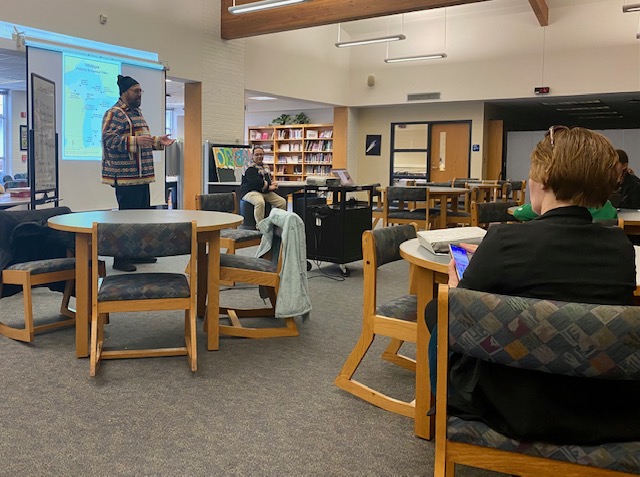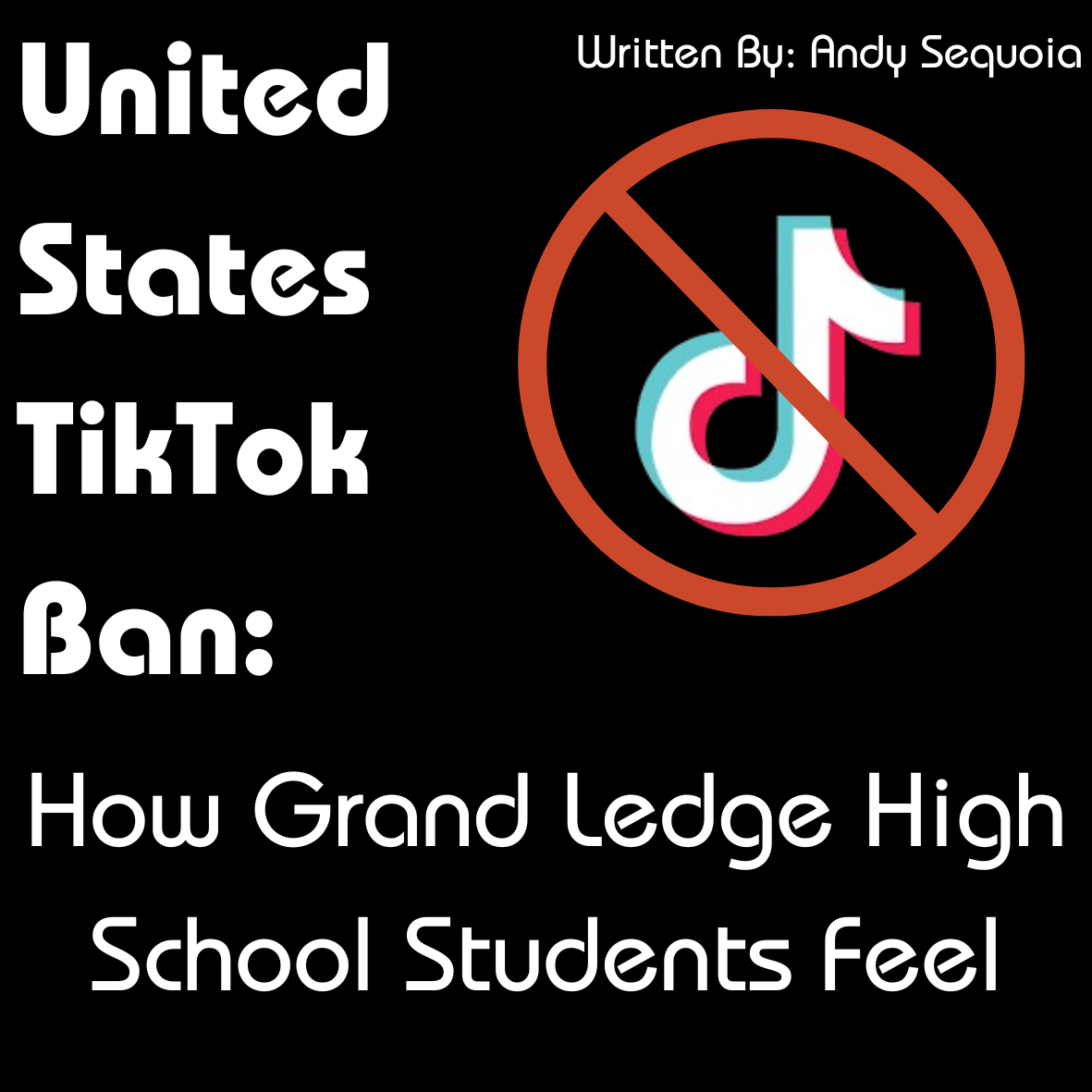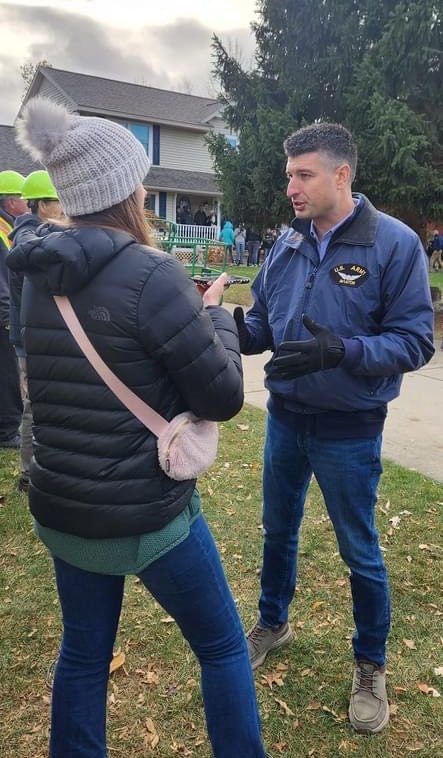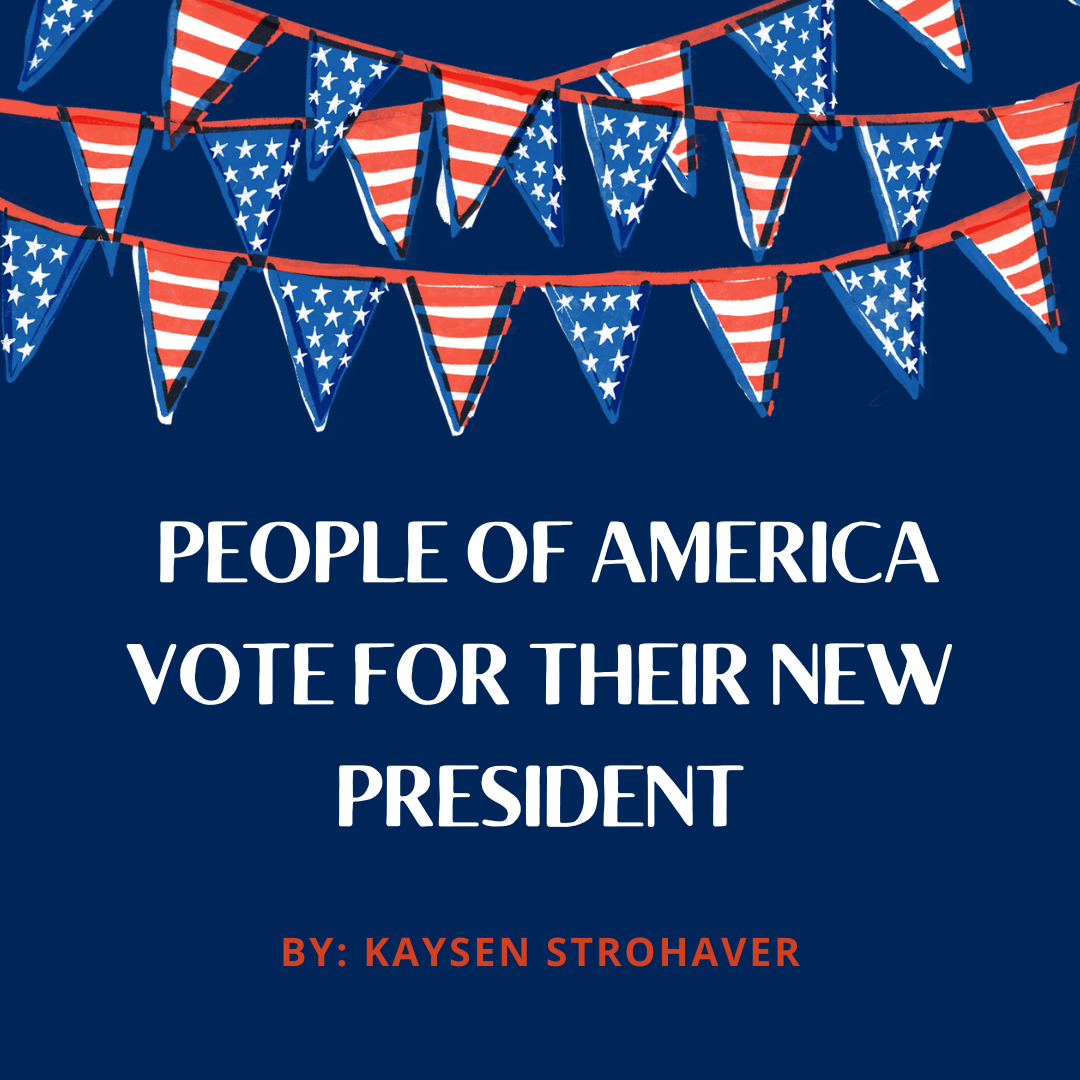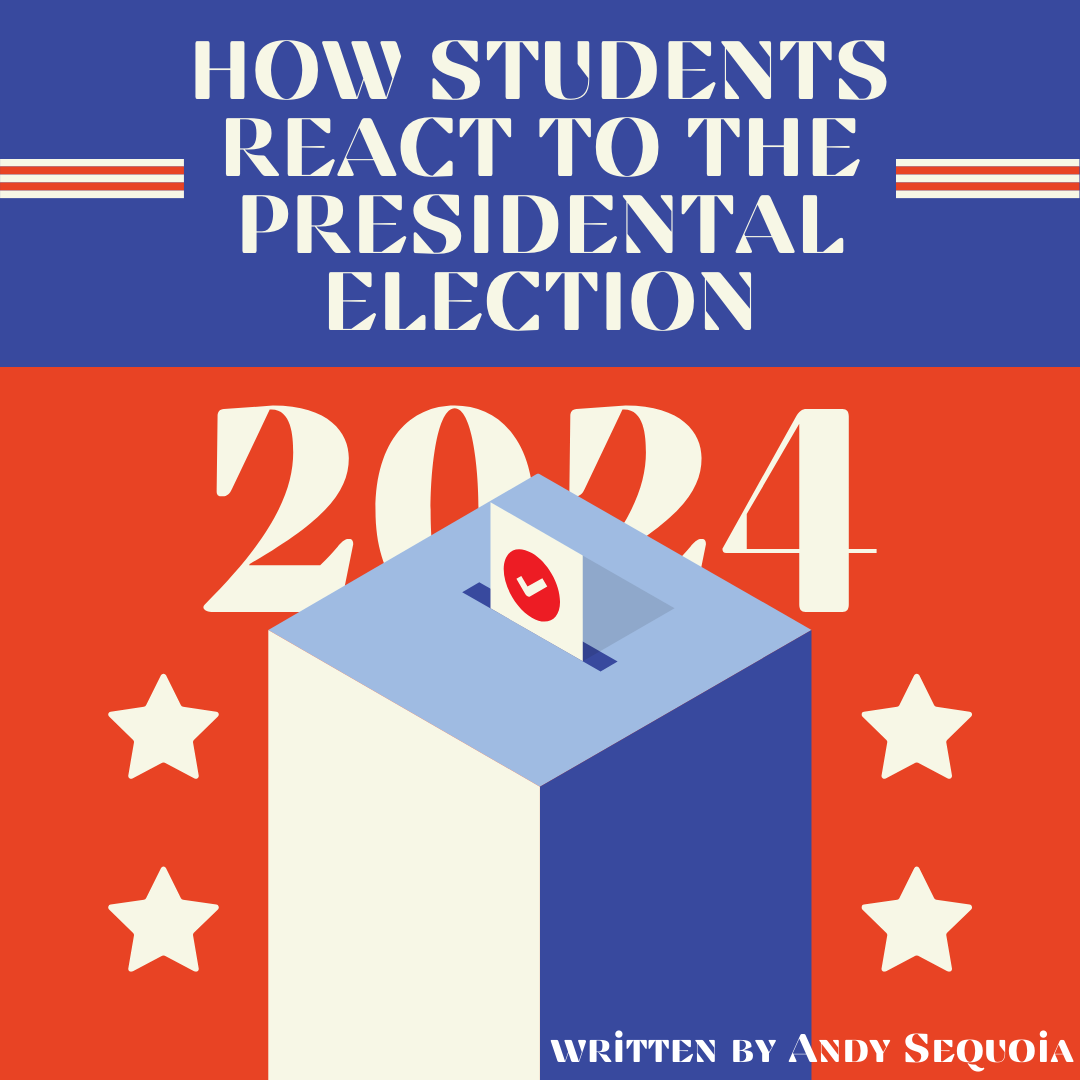Donald Trump’s First 100 Days
Donald Trump implements his agenda in the first week of his administration
Written By: Ava Delaney
At the start of 2025, Donald Trump’s second presidential term has started. Trump’s official inauguration into office was Monday, Jan. 20, 2025. A President and the upcoming success they can potentially have is typically judged based on the first 100 days of the Presidency.
In Trump’s first week in office for his second term, many calls to action have taken place.
On the first day, According to the Executive Office Of The President, these executive orders are to “protect the American people and safeguard valuable taxpayer resources…”
Protecting the American People Against Invasion, this order includes enforcing the nation’s immigration laws and deporting those of illegal status who are currently in the United States. A significant increase in Border Patrol and ICE has already been observed.
Reevaluating and Realigning United States Foreign Aid, this order is to initiate a review of all foreign assistance programs, making sure each follows the foreign policy and is efficient.
Putting America First in International Environmental Agreements has resulted in the U.S. pulling out of the Paris Agreement; the Paris Agreement is an international treaty that includes climate change mitigation, adaptation, and the finances to support it. he U.S International Climate Finance Plan is revoked; all funds for this program are to be frozen within 10 days of Jan 20, 2025. Another order that will affect the environment.
Unleashing American Energy, Under this order oil and fuel production will increase, especially maximizing production in Alaska. It also aims to halt activities protected by the ANWR ( Arctic National Wildlife Refuge) and NPR-A (National Petroleum Reserve in Alaska). Trump also declared a National Energy Emergency to unlock full energy production in America. All new federal leasing and permitting for massive wind farms have been put on pause.
Ending Radical and Wasteful Government DEI Programs and Preferencing, Trump required federal agencies to evaluate DEI (Diversity, Equity, and Inclusion) programs and get rid of them if they don’t agree with his administration’s views. All funding to these programs was frozen as of Jan. 28, 2025 at 5 p.m. To resume funding federal agencies must submit and provide proof they agree with Trump’s administration’s views. DEI staff are being put on leave.
Defending Women from Gender Ideology Extremism and Restoring Biological Truth to the Federal Government, this initiative aimed to insert the idea that biological sex is the determining factor in gender, stating there are two sexes: Men and Women. This could result in changes to federal policies and guidelines or gender identity specifically in healthcare, sports, education and overall civil rights
Enforcing the Hyde Amendment, the purpose of Hyde Amendment is to prevent federal funding of elective abortion. This new order refocuses and reaffirms this policy that prohibits federal taxpayers’ dollars for abortions other than for medical reasons.
Other things that have been done in the first 100 hours of Trump’s second term, secured 500 billion in private sector investment for an AI infrastructure project.
Significant change in federal hiring, The Federal Aviation Administration must return to merit-based hiring, affirmative action is not mandated in government hiring.
These seven executive orders are just some of the first in Trump’s administration plans. All will create significant changes for United States Citizens.
Voices Of A New Generation
What’s on the Minds of High Schoolers as Politics Unfold
Written By: Raegan Ward
As political events continue to unfold across the United States (U.S.), students at Grand Ledge High School (GLHS) have been paying close attention, voicing their opinions, and reflecting on how the decisions made could impact their futures.
With Donald Trump returning to the political scene and the country facing growing social tensions students are starting to reflect on the future direction of the nation.
For some, the state of the nation is a cause for concern, while others see the transition of power as an opportunity for change and new perspectives.
“I feel worried about it all honestly. I don’t believe President Trump has the nation’s best interests at heart,” senior Daniel Thomas said.
Thomas feels uneasy about what lies ahead under the political return of Donald Trump to the White House. He expressed his concerns about Trump’s leadership
“His cabinet is going to be filled with the ultra-wealthy who don’t understand or connect with the average person,” Thomas said.
He’s particularly troubled by the possibility that Trump’s cabinet might be filled with individuals who are out of touch with everyday Americans. For him, a government run by billionaires raises serious red flags.
“Their mentality that the government can be run like a business is very worrying…Businesses are notorious for sacrificing the interests of the lowest in exchange for profits,” Thomas said.
This, he believes, could have negative consequences for the most vulnerable people in society.
On the other hand, some of the students at GLHS see the shifting political landscape as a potential for growth, even though there could potentially be growing divisions within the country.
“I feel like the transition of power is an opening to new opportunities and things that could happen,” junior Lilly Kloeckner said.
Yet, she’s concerned about the increasing inability of people to embrace differing viewpoints.
“I think the country is more divided now because people can’t accept others’ opinions, and they judge,” Kloeckner said.
This reflection demonstrates the difficulty many students see in finding common ground and understanding in a time when political discussions often spiral into divisions rather than agreement.
Others also have a perspective that is shaped by a deep understanding that politics doesn’t just affect adults, it affects the student body.
“I think my voice matters in political decisions. The reason why is because political decisions affect me and my community,” sophomore Isha Singh said.
Though she’s too young to vote, Singh believes her voice still holds meaning because the policies that shape the world are felt by everyone, regardless of age.
When it comes to the thought of Trump returning to office there are concerns circulating.
“I wasn’t too happy about Trump returning to office, and no, I do not support his leadership,” Singh said.
For her, it boils down to Trump’s past statements and actions that she believes are harmful, particularly toward women.
Singh’s disapproval reflects the frustration some young people experience toward leaders whose morals and policies may not align with their values of respect and equality.
But despite these challenges, there is a shared sense among students that their voice matters, even if they can’t vote yet.
As the political scene shifts, it’s clear that young people, like Thomas, Kloeckner, and Singh, are paying attention, and are ready to shape the future of political discourse, and make their own decisions about what kind of country they want to live in.
“I think by just staying educated from all angles, knowing the candidates from all the elections, not just presidential and congressional, and although it feels like it does nothing, still going out to vote are great ways to make young voices heard,” Thomas said.
The First Few Days Under Donald Trumps Second Term
Written By: Andy Sequoia
Jan. 20, 2025 Donald Trump became the United States 47th President. Since being elected in November of 2024 he has made plans and promises on numerous topics of conversation like lowering prices on groceries and gas, ramify protection at the U.S.- Mexico border, majorly pardoning those convicted from the January 6, 2021 attack on the Capitol, aiding the end to the Ukraine-Russian war, and much more. Within his first week he had signed a minimum of 37 executive orders and proposed even more bills and actions. Although not many of his executive orders have made it past the Capitol walls, each of them have made an impact on society and how America is going to persist.
Foreign Policy
1/20: America First Policy Directive to the Secretary of State
1/20: Reevaluating and Realigning United States Foreign Aid
1/22: Designation of Ansar Allah as a Foreign Terrorist Organization
Disaster Response
1/24: Emergency Measures to Provide Water Resources in California and Improve Disaster Response in Certain Areas
1/24: Council to Assess the Federal Emergency Management Agency
Economy
1/20: Unleashing American Energy
1/20: Declaration of a National Energy Emergency
Environment
1/20: Putting America First in International Enviornmental Agreements
1/20: Unleashing Alaska’s Extraordinary Resource Potential
Health
1/20: Withdrawing the United States from the World Health Organization
1/24: Enforcing the Hyde Amendment
National Security
1/27: The Iron Dome for America
1/27: Restoring America’s Fighting Force
1/27: Prioritzing Military Excellence and Readiness
1/27: Reinstating Service Members Discharged Under the Military’s COVID-19 Vaccination Mandate
Immigration
1/20: Clarifying the Military’s Role in Protecting the Territorial Integrity of the United States
1/20: Realigning the United States Refugee Admissions Program
1/20: Protecting the Meaning and Value of American Citizenship
1/20: Securing Our Borders
1/20: Restoring the Death Penalty and Protecting Public Safety
1/20: Protecting the American People Against Invasion
1/20: Designating Cartels and Other Organizations as Foreign Terrorist Organizations and Specifically Designated Global Terrorists
1/20: Protecting the United States from Foreign Terrorists and Other National Security and Public Safety Threats
Government
1/20: Ending the Weaponization of the Federal Government
1/20: Restoring Accountability to Policy-Influencing Positions Within the Federal Workforce
1/20: Holding Former Government Officials Accountable for Election Interference and Improper Disclousure of Sensitive Governmental Information
1/20:Reforming the Federal Hiring Process and Restoring Merit to Government Service
1/20: Ending Radical and Wasteful Government DEI Programs and Preferencing
1/20: Defending Women from Gender Ideology Extremeism and Restoring Biological Truth to the Federal Government
1/20: Establishing and Implementing the President’s ‘Department of Government Efficiency’
1/20: Restoring Names that Honor American Greatness
1/20: Restoring Freedom of Speech and Ending Federal Censorship
Technology
1/20: Application of Protecting Americans from Foreign Adversary Controlled Applications Act to TikTok
1/23: Removing Barriers to American Leadership in Artificial Intelligence
1/23: Strengthening American Leadership in Digital Financial Technology
Miscellaneous
1/20: Initial Recessions of Harmful Executive Orders and Actions
1/23: Declassifications of Records Concerning the Assassination of President John F. Kennedy, Senator Robert F. Kennedy, and the Reverend Dr. Martin Luther King, Jr.

